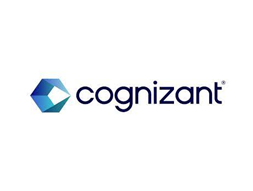How might we harness groundbreaking AI, ML and Remote Sensing models to redefine current ways of working and inform effective action to tackle water pollution?.
Challenge
Out of River Deep Mountain AI (RDMAI) and other related work, we have built a set of capabilities which that use artificial intelligence, machine learning, generative AI and remote sensing, to understand and predict different variables impacting waterbodies health. Models out of RMDAI are open-source and available for citizens, researchers, water organisations, and NGOs to use. Additionally, engaging ways of interaction through generative AI enable users to consume insights as never before.
But that is only the start. To induce systemic change, these technologies must be put into practice. Practitioners must include models, and the insights generated into their daily activities, to truly make an impact on current ways of working. Only then, models can inform effective action to tackle waterbody pollution and support nature’s regeneration.
Description
The sprint tackles the challenge of getting new AI/ML and remote sensing models used in everyday work. At River Deep Mountain AI, and in collaboration with partners, we have built the models, now we must take action to ensure their adoption. We will identify best practices to ensure the adoption of these technologies and design strategies to encourage change. Participants will create concepts for digital solutions and adoption plans, focusing on how to motivate citizens, organizations, and/or policymakers to embrace these tools for better water management. The goal is to ensure these models effectively inform action and drive positive change.
How we will do it
During the sprint:
- We will present a showcase on RDMAI to communicate state of the models, collaboration, potential use
- We will present additional capabilities using AI/ML, genAI, and remote sensing in the water sector
- Teams will be presented with frameworks to define adoption strategies, looking to change behaviours in current ways of working
- Teams will work together to define concrete activities and outcomes to introduce technologies and insights in daily work
- Teams will generate concepts to demonstrate how models can become part of the used set of tools
Target Outcomes
- A plan with concrete activities and desired outcomes, defining opportunities to use insights out of models to inform decision-making in the context of key stakeholders (water organisations, regulators, NGOs, consultancy, research, etc)
- A strategy to introduce technology within a stakeholder environment so that models become part of used set of tools
- Concept of a digital solution that uses capabilities introduced during the sprint
Who will benefit from this sprint?
- People with a technical background looking to get more depth into built capabilities
- Decision-makers who need insights out of models to effectively plan investments in regenerative practices
- Commissioners, person who is going to give the authorization to go and test the solution.
| Registration has now closed |

